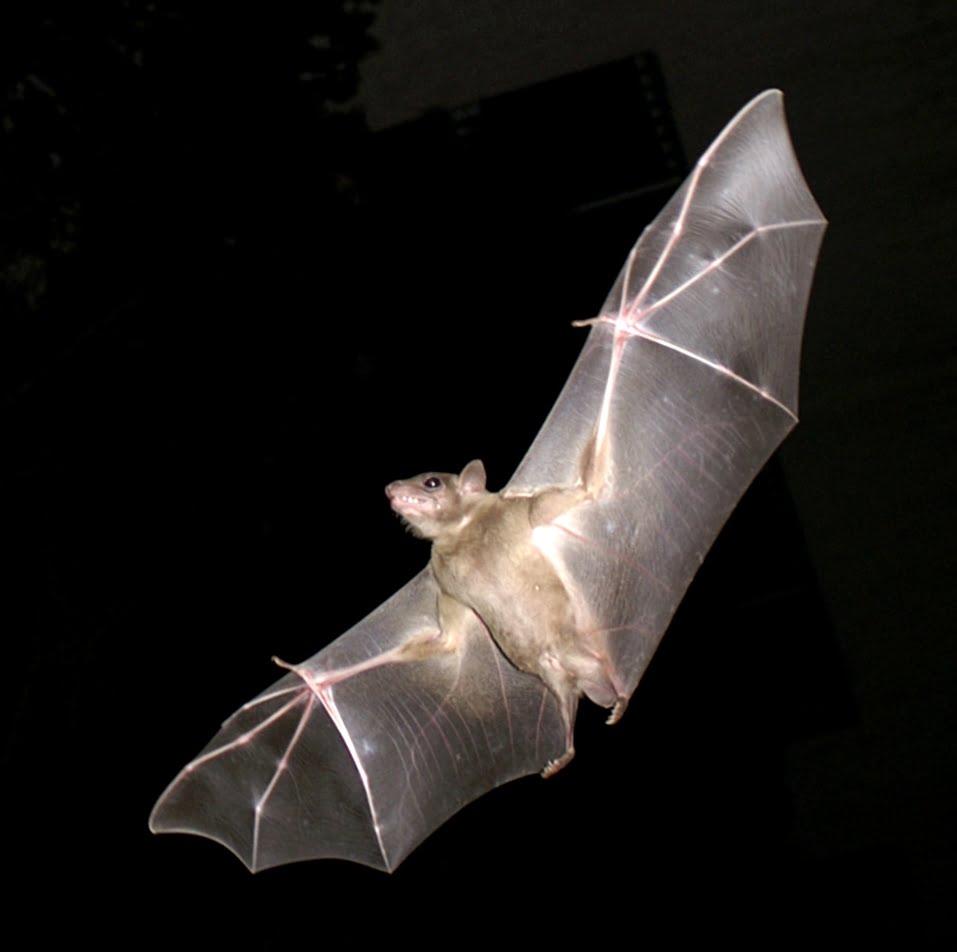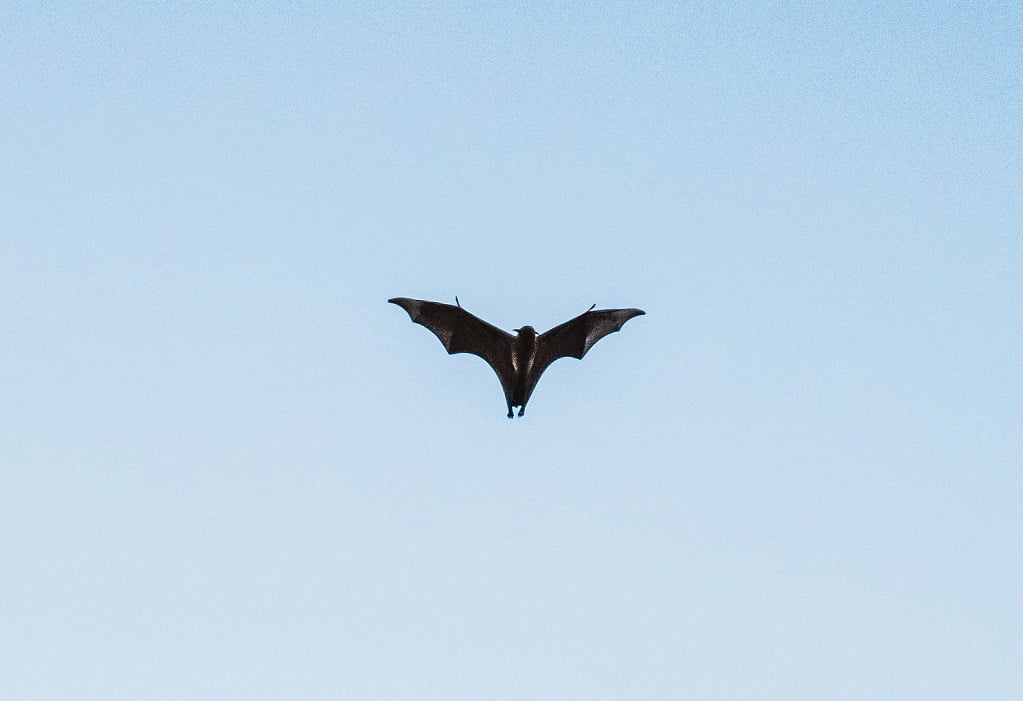Sick bats, like sick humans, prefer to keep a distance from members of their colonies, probably as a means for recovery and possibly also as a measure for protecting others, an Israeli study has found.
The new research, published in the “Annals of the New York Academy of Science” in April, looked to study communal roosting and how animals reduce major risks of pathogen transmission. Israeli researchers from Tel Aviv University monitored two colonies of highly social animals, Egyptian fruit bats, one group in an enclosure and the other group in its natural environment. To examine their behavior when they get sick, the researchers injected several bats in each group with a bacteria-like protein, lipopolysaccharide, to stimulate their immune response (without posing any real danger to the bats.)
SEE ALSO: Israeli Researchers Develop Vibrating Vest To Communicate Wordlessly With Dogs
They then monitored the behavioral and physiological responses of the animals using a number of methods, including onboard GPS to track foraging, acceleration sensors to monitor movement, infrared video to record social behavior, and blood samples to measure immune markers.
Testing of the sick bats revealed symptoms such as a high fever, fatigue, and weight loss.

The researchers discovered that, in general, the affected animals chose to keep away from the colony, reducing possible pathogen transfer. In the first group, they isolated themselves, leaving the bat cluster of their own accord – an act that is extremely atypical for this bat species, according to the study. In the second group, they likewise moved away from the other bats in the colony and ceased foraging for food outdoors for at least two nights, “thus reducing transmission to neighboring colonies.”
“Together, these sickness behaviors demonstrate a strong, integrative immune response that promotes recovery of infected individuals while reducing pathogen transmission inside and outside the roost, including spillover events to other species, such as humans,” the researchers wrote in the abstract of the study.
Sign up for our free weekly newsletter
Subscribe“The bats’ choice to stay away from the group is highly unusual for these animals. Normally these bats are extremely social creatures, living in caves in very crowded conditions,” said Maya Weinberg, a PhD candidate at the laboratory of Professor Yossi Yovel, head of the Sagol School of Neuroscience, and a researcher at the School of Zoology at the George S. Wise Faculty of Life Sciences, who co-led the study.
“In fact, the ‘sick’ bats’ behavior is very reminiscent of our own behavior during recovery from an illness. Just as we prefer to stay home quietly under the blanket when we are ill, sick bats, living in very crowded caves, also seek solitude and peace as they recuperate,” Weinberg added according to a university statement.

Professor Yovel added that the study’s findings suggest that the likelihood of bats passing pathogens to humans under regular conditions is very low, because sick bats tend to isolate themselves and stay in the cave.
The research comes after more than a year of social distancing, lockdowns, isolation and quarantine brought on by the global COVID-19 pandemic – an outbreak that is widely believed to have originated in bats. Scientists have yet to determine the origins of SARS CoV-2, the virus that causes COVID-19, but the closest related viruses have indeed been found in bats.
“We observed that, during illness, bats choose to stay away from the colony and don’t leave the cave, and thus avoid mixing with other bats,” Professor Yovel noted. “This suggests that in order to encounter a sick bat, people must actually invade the bats’ natural environment or eliminate their habitats. In other words: If we protect them, they will protect us.”
Related posts

Israeli Medical Technologies That Could Change The World

Harnessing Our Own Bodies For Side Effect-Free Weight Loss

Missing Protein Could Unlock Treatment For Aggressive Lung Cancer




Facebook comments